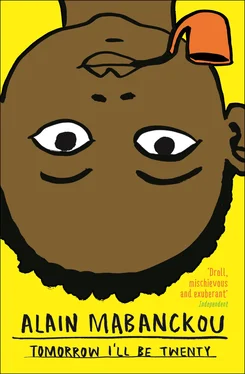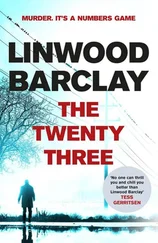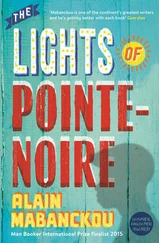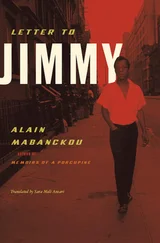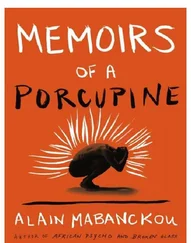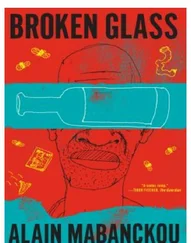We walked in silence. Caroline seemed to be walking slowly. So I slowed down too, to wait for her, and she gave me her hand, and I took it, and we went on our way like that, still not speaking, all the way to the river.
‘Michel, what have we come down here for? I don’t like this river, it smells, and the toads make such a noise! Did you know, toads are devils? They say they’re bad people who’ve died and been turned into toads.’
I hear a plane. I can only make out its wing, the rest is hidden behind a big dark cloud. I don’t want to try and guess which country it’s going to, or the capital of the country. Instead I’m thinking about next year. Maybe I’ll have my School Certificate in my pocket and I’ll go to Trois-Glorieuses secondary school. I’ll take the workers’ train with my friends. I’ll be in year 7, but Lounès will be in the big children’s class, in year 9. I’ll learn difficult things without worrying about becoming a madman like Little Pepper, Athena or Mango. I’ll be a little chap with hair under my chin and down below, inside my pants. I’ll walk faster than I do now because I’ll have muscly legs. My voice will change too, it won’t be high any more, and when I laugh people will say: ‘Hey, that’s a man laughing, not a little boy from Trois-Martyrs primary school, where water comes through the roof when it rains.’
Caroline gives me a shake, ‘Michel, are you dreaming, or what?’
‘I was thinking about next year when I go to big school.’
‘Did you find your mother’s key?’
I nod. Just now we were sitting down, but now she stands up suddenly and smiles at me.
‘Where is the key? Can I see it too?’
‘I gave it to my mother.’
I take out a little piece of paper from my pocket and hand it to her. She unfolds it to find the poem I wrote for her a long time back. Her lips move, her eyes fill up. But she doesn’t tell me what she thinks. I know she likes the poem, even if it’s not like the poem by Victor Hugo that her brother once recited.
She folds the piece of paper again, and hides it in her dress pocket. Just at that moment I take the key out of my pocket, the one that opens tins of headless sardines made in Morocco: ‘Here, this is for you too. Look after it carefully. I know you’ll need it one day to open your belly with.’
She has a bit of a bug in her eye and I can feel my heart dipping down into my stomach. I am so in love with her.
She tells me to get up and she takes me in her arms.
‘Do you still want to have two children with me?’
‘Of course.’
‘I love you Michel.’
‘I love you too and…’
‘Tell me how you love me.’
‘I love you like the red five-seater car we’re going to have.’
‘And the little white dog, don’t forget!’
The wind blows and whips up the river. Perhaps it’s going to rain. Caroline takes me by the hand and we leave the river. I’ll walk her back to her house, then I’ll go home, Maman Pauline will make me beef with beans this evening.
They buried poor Longombé a few weeks ago. I can’t stop thinking about him. I can still see him, at the back of Monsieur Mutombo’s workshop. He’s a bit hazy now, because he’s not of this world. I see him walking down a long road, with patches of grass here and there. It’s the road that leads into our world and the one you walk back down the day you die. If you pass someone going the other way when you’ve just been born, that means they’re already dead and it’s their ghost returning to where they lived, first for the burial, then to go and collect their things before leaving this earth forever.
I’m looking for a different road, the road to happiness, to walk down in my bare feet in the heat of the sun, even if the tarmac burns my feet. I’ll go far, far away, to where all roads meet, where you find all the people who’ve gone on ahead, and look different now, to how they did on earth. I have to keep the road fixed carefully in my head, I don’t want to find when I’m older that it’s vanished and I’m stuck with lots of bad people who don’t love me, and want to hurt me.
I’ll walk down this road the way the crabs walk on the sand on the Côte Sauvage: you think they’re going left, then they turn back, they stop for no reason, they go round in circles, they set off fast to the right, then come back to the left again. But what I like about the crabs is, they always know where they want to go, and sooner or later they get there, even though they’ve lots of different feet that all want different things and quarrel along the way. When I’m on the road to happiness, then I’ll know I’ve finally grown up, that I’m twenty at last. Maybe I’ll have lots of brothers and sisters around me. And just for a moment I’ll glance over at Maman Pauline, while Papa Roger’s listening to Voice of America, or the singer with the moustache, weeping for his friend, the old oak, his alter ego , the one he should never have taken his eye off.
Afterword by J. M. G. Le Clézio
The publication of Alain Mabanckou’s novel, Broken Glass , was an important landmark in francophone literature. With certain reservations one might compare its impact on francophone writing to that of Sozaby , by the Nigerian writer Ken Saro-Wiwa, on English literature — the reservations being partly that Mabanckou’s novel was written in standard French, and partly that the relationship of the pidgin English used by Saro-Wiwa to the English language is more ongoing and symbiotic than that of Creole or any of the other hybrid African dialects to French. Like many novels inspired by the reality of the new Africa — Waiting for Wild Beasts to Vote by Ivory coast writer, Ahmadou Kourouma, or the famous Palm-Wine Drinkard by Nigerian, Amos Tutuola — Alain Mabanckou’s novel derives its humour from the convention of the satirical tale, a genre in which the young generation, born during or immediately after Independence, revels. Critics and the general reading public alike gave a rapturous welcome to the oracular pronouncements of Broken Glass from the bar named — as though straight out of Céline — Credit Gone West. Bernard Pivot hailed the work as ‘truculent, exuberant, garrulous, uproarious, no-holds-barred comedy’. The novel showed Mabanckou to be a true writer, with a story, a past, a literary context of his own, all of which were in fact already apparent in his early poetry and in his first published novel. As such it held out the promise of a great future.
Tomorrow I’ll Be Twenty is the realisation of that promise. The novel, or rather, first-person narrative, puts us inside the head of a young boy, Michel, born, raised and educated in an Africa which is his exact contemporary (as is the author himself), in which everything is in the throes of being invented, re-invented, reconstructed, amid the apparent chaos of a society caught between nostalgia for its colonial past, and the hope of freedom, or perhaps more accurately, between the illusion of ancestral wisdom and the reality of everyday life. Readers who are interested in this real Africa (worlds away from the exotic tales of twentieth-century explorers, as from the supposed philosophical profundities of the gurus of pan-Africanism), will be put in mind of other masterpieces of post-colonial literature in English, such as Things Fall Apart by Nigerian Chinua Achebe, or Aké by Wole Soyinka, another Nigerian, which also features a small boy, the same age as Michel.
Alain Mabanckou shows us his world through the naive, observant eyes of a child, and what is both captivating and moving is the child’s take on the follies and contradictions of every aspect of post-colonial society, as seen through the prism of the immediate family circle: rampant capitalism dressed in the faded finery of the Marxist struggle, the greed of the moralising rich, absurd nostalgia for the myth of the Wretched of the Earth. And Congo-Brazzaville itself, which appears variously as Vietongo, with its capital Mapapouville, the Trois-Cents district in Broken Glass , Pointe-Noire, as described by the garrulous Moki, or even, in Memoirs of a Porcupine , as a well-watered land, home to the baobab trees so dear to Saint-Exupéry.
Читать дальше
